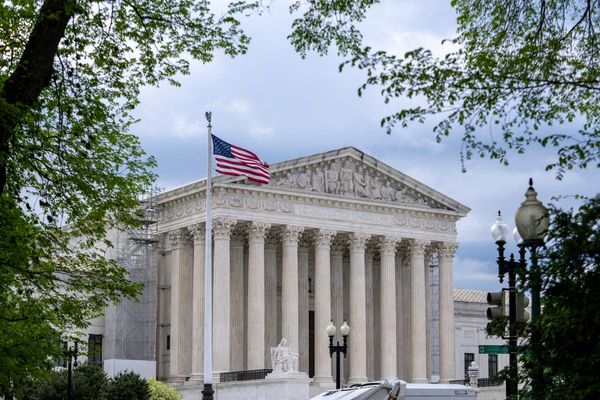What was once the nation’s largest network of youth prisons is no more.
California’s final remaining youth prisons shuttered on June 30, marking an end to a 132-year-old statewide correctional system plagued by violence and abuse. Youths previously in custody under the California Division of Juvenile Justice have all been spread across the state’s 58 counties.
Coinciding with last week’s historic closures was an announcement that a controversial nonprofit formed to help facilitate the transition of youths from state-run facilities to their home counties would also be winding down.
That organization, led by probation chiefs from 55 counties, including Sacramento, has spent recent months meeting behind closed doors to make decisions about how to serve young offenders, particularly those deemed the most dangerous or with severe mental health and behavioral needs.
Abraham Medina, director of the California Alliance for Youth and Community Justice, called the nonprofit’s pending demise an “important victory” but added that there was more work to be done to transform the state’s approach to treating young people accused of crimes.
“We have a long way to go as a state to really say that California has youth development and health-based approach to youth accused of harm,” Medina said. “... But at least now it won’t be the case that all these roles and functions are being performed by a shadow juvenile justice system operating in secret.”
Gavin Newsom signs juvenile justice reform law
Both developments stem from legislation signed by Gov. Gavin Newsom in 2020 to take the state out of the business of incarcerating juvenile offenders and provide a long-sought transformation of California’s troubled youth correctional system.
Senate Bill 823 created what was referred to as a “realignment” of the juvenile justice system. It required counties to identify alternatives to confining minors in adult lockups and provide mental health and other “evidence-based” and “trauma-informed” services. The law also established the new Office of Youth and Community Restoration in the state’s Health and Human Services Agency to oversee the transition and help guide a shift from a punitive to a rehabilitation-focused approach.
Most counties, including Sacramento, decided to place most young people returning from state-run prisons into their juvenile halls, which were originally intended for short-term pretrial stays.
Juvenile justice reformists, who applauded the goals of the legislation, saw this as a missed opportunity to change the system.
Opposition emerges for California juvenile justice reform
County probation chiefs, tasked with implementing Newsom’s plan, opposed it from the start. They argued state leaders failed to give them enough time and resources to successfully make the shift. So shortly after the governor signed the law, probation chiefs took an unusual step of quietly forming a tax-exempt, nonprofit corporation to coordinate efforts in private, allowing them to avoid public scrutiny.
The organization — called the County Probation Consortium Partnering for Youth Realignment — collected more than $750,000 in membership dues from counties, including nearly $60,000 from Sacramento County, and received a $760,000 consulting contract from the state of California.
Then late last month, the nonprofit abruptly announced it planned to dissolve by the end of 2023. Probation chiefs spent nearly as much time planning to launch the organization as it was incorporated. Although all of the funding gathered by the Consortium is public money, it is unclear how the organization has used the funds and how much remains.
Karen Pank, a board member of the nonprofit and executive director of Chief Probation Officers of California, said in a statement that the Consortium met its mission and was no longer needed.
“It has become clear now that with the full closure of (the Department of Juvenile Justice) in place and the responsibility of juvenile justice left to county governments, the consortium’s work to be a safety net for problem-solving across counties has been accomplished,” Pank said in a statement.
Consortium executive director Elizabeth Siggins added in a statement that the main purpose of the organization — helping counties partner with each other when they couldn’t serve youth in their own county — turned out to be far less of an issue than anticipated.
Of the last 400 youths transferred out of state-run facilities, only about 10 were placed in a county that they weren’t from, according to Siggins.
Lawsuit targets California probation chief nonprofit
The announcement comes just four months after a coalition of juvenile justice reform advocates filed a lawsuit in Sacramento Superior Court contending that the consortium was violating state law by meeting in private and withholding records. The Youth Law Center, the San Francisco-based organization that filed the lawsuit sent subpoenas to eight California counties requesting public records related to their involvement in the Consortium.
Siggins, who calls the lawsuit “baseless,” said it played no role in the decision to phase out the organization.
“We know we stand on solid legal ground and are confident we would have been successful,” she said in a statement.
Meredith Desautels, a staff attorney at the Youth Law Center, said that the case was still pending but that her firm was evaluating whether the nonprofit’s termination would lead to a resolution of the case.
“We’re glad to hear that the County Probation Consortium will be winding down their organization,” Desautels said. “California’s historic effort to transform its justice system to a health-based approach will succeed only if it’s transparent and accountable to the communities it’s intended to serve.”
The state Department of Corrections and Rehabilitation will maintain the infrastructure at the state’s shuttered justice facilities in Stockton and Camarillo, but the agency has not announced any plans for future use.
____







